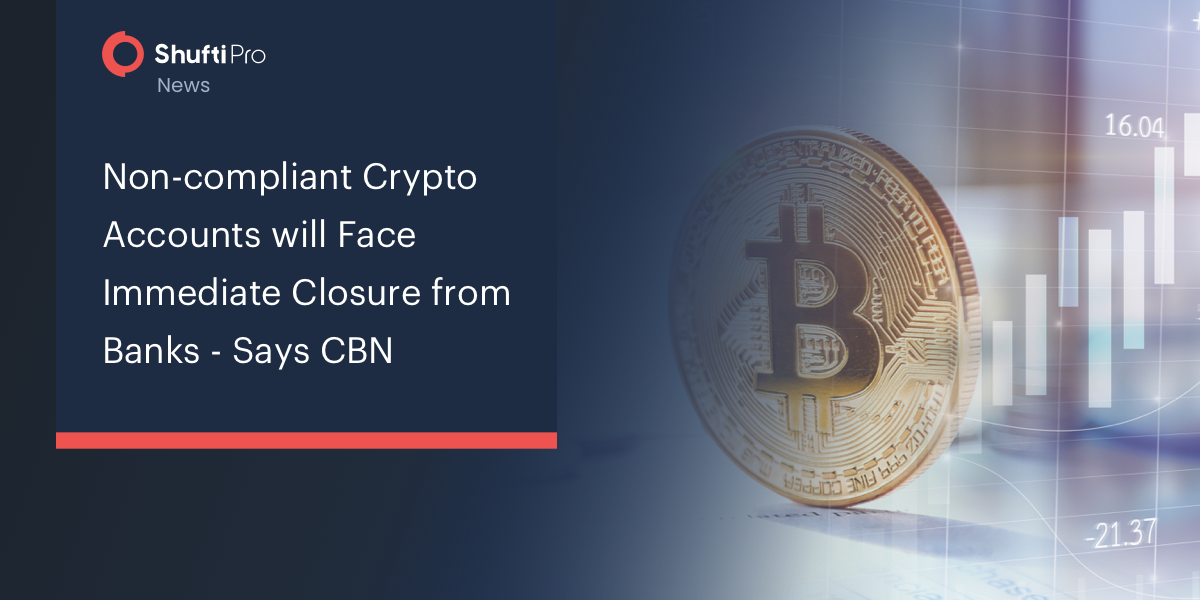Non-compliant Crypto Accounts will Face Immediate Closure from Banks – Says CBN

Nigerian banks are ordered to track and freeze non-compliant crypto accounts, while banks that fail to fulfill requirements will be sanctioned.
Nigerian banks have begun to monitor accounts that seem to be used for digital currency trading. The action is in acknowledgment of the Central Bank Of Nigeria (CBN), obliging commercial banks to freeze the accounts belonging to individuals involved in cryptocurrency trading.
The crackdown of de-banking crypto traders is reportedly part of the significant move of financial regulators to immediately close the accounts of the locals or businesses “transacting in or operating cryptocurrency exchanges” using Nigerian banks.
In February, the CBN banned multiple banks that were facilitating crypto businesses and individuals in the country, quoting concerns of anonymity, volatility, terrorist financing, and money laundering. CBN Governor Godwin Emefiele also declared that most of the crypto transactions through banks in the country were “illicit” and were used to finance criminal activities.
According to a report by local publication leadership, an in-house memo in one of the banks directed workers to monitor accounts with suspicious transactional activities or those that are engaged in crypto trading.
According to the memo, the leadership stated, “We wish to reiterate that the CBN is strictly monitoring non-compliance with the directive on the closure of all accounts involved in cryptocurrency for high-impact regulatory sanction. In view of the above, all staff is hereby advised to identify entities transacting in or operating cryptocurrency exchanges within their systems and ensure that such accounts are closed immediately. Any member of staff who willfully does not disclose an account used for cryptocurrency transactions in order to enable such an account to be closed will be sanctioned in line with the provisions of the bank’s sanctions grid.”
Bank employees are supposed to monitor clients’ accounts and transactions to protect banks from money launderers and terrorism financing groups. Accounts that would be flagged include fintechs carrying out large transactions on a daily basis without a regulatory payment license or having an association with crypto trading services. Additionally, accounts that receive large inflows of transactions from multiple sources and outflows to multiple beneficiaries will also be flagged.
According to Victor Fredung, “The manual approaches of staying compliant with the KYC/AML regulations are incompetent as the world is moving toward digitization. Automated and robust identity verification solutions are today’s need, and can back financial institutions to stay put with the regulatory obligations.”
Suggested Read: CBN Regulatory Regime – New KYC/AML Requirements Payment Services Banks

 Explore Now
Explore Now













